TransatlanTech Insider—July 2025 Edition
Welcome to the July edition of the TransatlanTech Insider.
This month, the White House fleshed out its vision for US AI competitiveness. First, a rollback of Biden-era export controls on advanced semiconductors for AI model development now allows NVIDIA to sell its sought-after H20 chips to the People’s Republic of China (PRC) in hopes of discouraging Beijing’s moves towards self-reliance. Second, the AI Action Plan introduces 90 federal measures for US AI dominance, including establishing AI centers of excellence, investing in AI-enabled manufacturing and next-generation industrial technologies, encouraging open-source and open-weight AI, and conducting research on Chinese Communist Party (CCP) talking points and censorship built into frontier models—all while scrubbing NIST’s AI Risk Management Framework of references to climate change, misinformation, or DEI.
In Brussels, despite pushback from both US and European firms, the European Commission unveiled its voluntary General-Purpose AI Code of Practice, providing a path for AI developers to demonstrate compliance with the AI Act on transparency, copyright, and safety and security. At the EU-China summit, Europe’s waning patience with PRC nonaction on industrial overcapacity and Russia’s war in Ukraine was on full display—despite Xi’s hopes for a show of unity. “As our cooperation has deepened, so have the imbalances,” quipped Commission President Ursula von der Leyen.
The backdrop is this week’s announcement of a US-EU trade framework centered around 15% tariffs on most European goods shipped to the US, including semiconductors, but excluding their manufacturing equipment. Whether the accord will affect the enforcement of EU digital regulations on US tech firms remains uncertain.
Over the summer, GMF Technology has been on the road, from Brussels to Paris to Berlin, holding key conversations on the future of US and European technology strategy—on defense innovation, contesting the PRC in the technology stack abroad, grading Made in China 2025 in biotechnology and quantum, and setting the table for allied 6G competitiveness. In this edition of the TransatlanTech Insider, we feature insights from these events and new original research on the PRC technology stack. Subscribe to receive future newsletter editions, follow us on X, and visit our webpage to learn more.
Featured This Month
GMF Technology Publishes Reports on China’s Increasing Role in the Technology Stack in Central Asia, Serbia

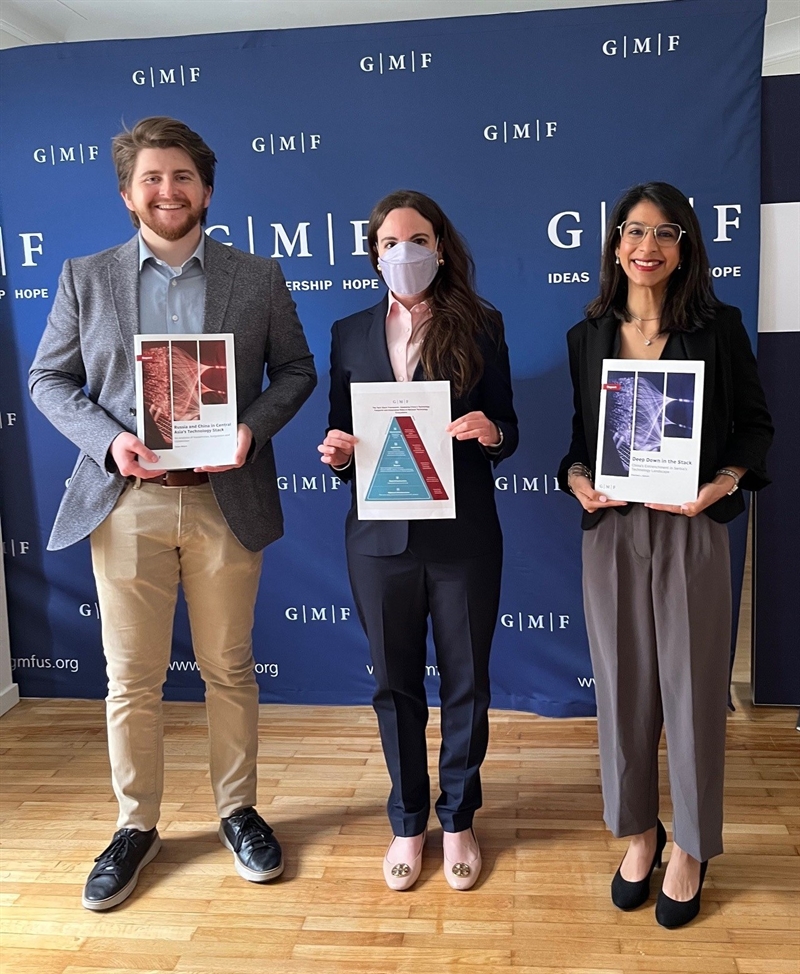
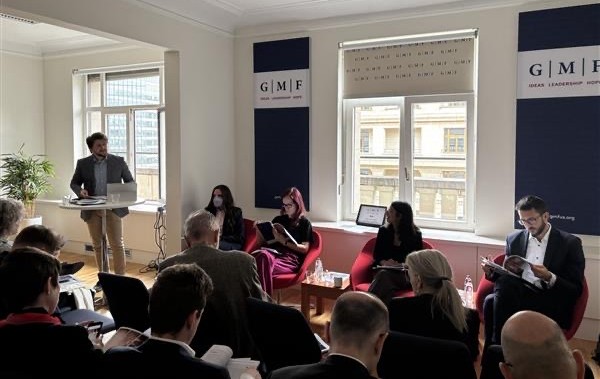
GMF Technology published two reports in June that use a “technology stack” framework to assess the PRC’s technology footprint in Serbia and the PRC’s and Russia’s influence in Central Asia. Managing Director Lindsay Gorman previously developed the analytical structure to map the presence of the PRC and its affiliated entities across countries’ technology domains. The stack features five layers: network infrastructure, data infrastructure, devices, applications, and governance. “Russia and China in Central Asia’s Technology Stack” by China Technology Analyst Dylan Welch sheds light on information and communications technology dependencies for Kazakhstan, Kyrgyzstan, and Uzbekistan. “Deep Down in the Stack: China's Entrenchment in Serbia's Technology Landscape” by Senior Officer Sharinee Jagtiani explores the evolution of the PRC’s Digital Silk Road initiative in Serbia.
GMF Technology hosted a public launch event for the two reports in Brussels on June 5. The authors presented their findings, followed by a panel discussion with Markéta Gregorova, Member of the European Parliament from Czechia; Grzegorz Stec, MERICS Head of Brussels Office and Senior Analyst; and Hoa-Binh Adjemian, Head of Unit for Private Sector Engagement at the Directorate-General for Enlargement and Eastern Neighborhood (DG ENEST).
GMF Technology Hosts Brussels Forum Panel on Competition and Innovation
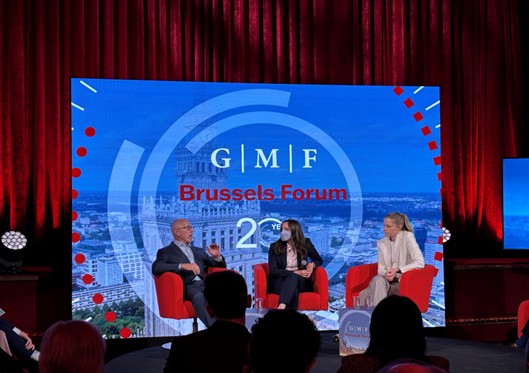
GMF Technology hosted three sessions at GMF’s signature Brussels Forum on June 11 and 12. “Tech Wars—Who Will Win the Innovation Race?” featured Heike Freund, Marvel Fusion Chief Operating Officer, and Frank McCourt, Founder and Executive Chairman of Project Liberty, as speakers and Gorman as moderator. The panel unpacked the partnerships needed for the transatlantic community to confront Beijing’s technology ambitions. Gorman gave a spotlight talk on the importance of retaining allied transatlantic cohesion in driving future emerging technology industries to open the conversation.
Brussels Forum Conversations Explore Made in China 2025, 6G Competitiveness
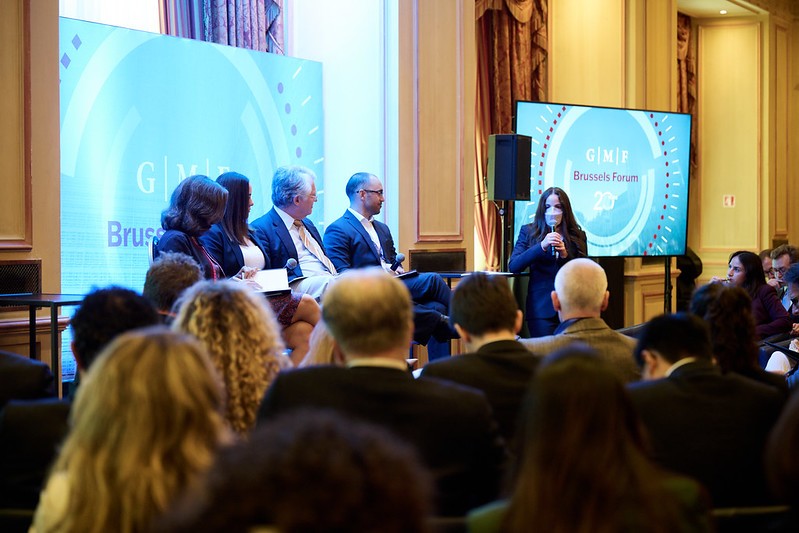
Gorman also led a breakout session on “Grading Made in China 2025: Did Beijing’s Industrial Tech Strategy Deliver?” with Fernando Dominguez-Pinuaga, SandboxAQ vice president of global outreach; Agatha Kratz, partner at Rhodium Group; Michelle Rozo, vice chair of the US National Security Commission on Emerging Biotechnology; and Jörg Wuttke, partner at DGA Group. The session connected the dots among the long-term future of US and European technological and industrial leadership, current political and economic dynamics with China, and the transatlantic trade and technology agenda. GMF Technology also participated in “The Global Race for 6G Technology and Its Implications for National and Economic Security”. The roundtable explored the national security implications of dependency on Chinese suppliers such as Huawei and ZTE and how democratic allies can ensure their trusted allies maintain their leading technical and commercial positions.
GMF, European Cyber Agora Partners Host Tabletop Exercise
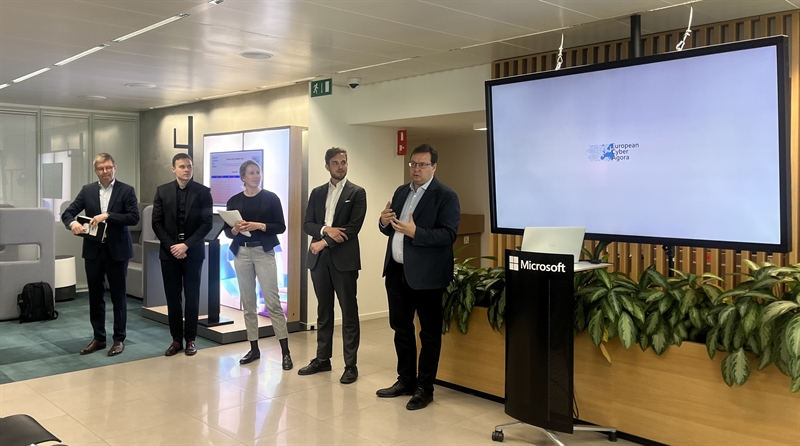
On June 3, the European Cyber Agora (ECA) partners—GMF Technology, EU Cyber Direct at the European Union Institute for Security Studies, and Microsoft—hosted a tabletop exercise in Brussels on “European Resilience” in collaboration with RiskSight. GMF Technology Program Manager and Fellow Julia Trehu moderated the discussions. The event brought together representatives from national governments, NATO, think tanks, and the private and legal sectors and challenged participants to think beyond siloed approaches when navigating an evolving cyber crisis in real time. Participants considered attacks on critical infrastructure, information-sharing in practice, and long-term resilience in the face of cross-border, cross-domain threats.
GMF Technology Hosts European Defense Innovation Dinner Debate

GMF Technology convened a salon-style dinner debate on how Europe can translate military technology innovation into concrete defense capabilities. Distinguished Fellow Heli Tiirmaa-Klaar moderated the discussion. Participants included Gorman, MEP General Riho Terras, Palo Alto Networks Chief Security Officer for Northern Europe Jesper Olsen, and Executive Director at European Cybersecurity Competence Centre (ECCC) Luca Tagliaretti, as well as other EU and NATO leaders.
Key priorities emerging from the discussion were the need for democratic nations to coordinate their technological advancement efforts to maintain their competitive advantage, a common European threat assessment framework, greater involvement of startups and innovative companies in defense capability development, and enhanced coordination mechanisms that span civilian and military domains to maximize the impact of European defense investments.
Gorman Judges SPRIN-D Deepfake Challenge
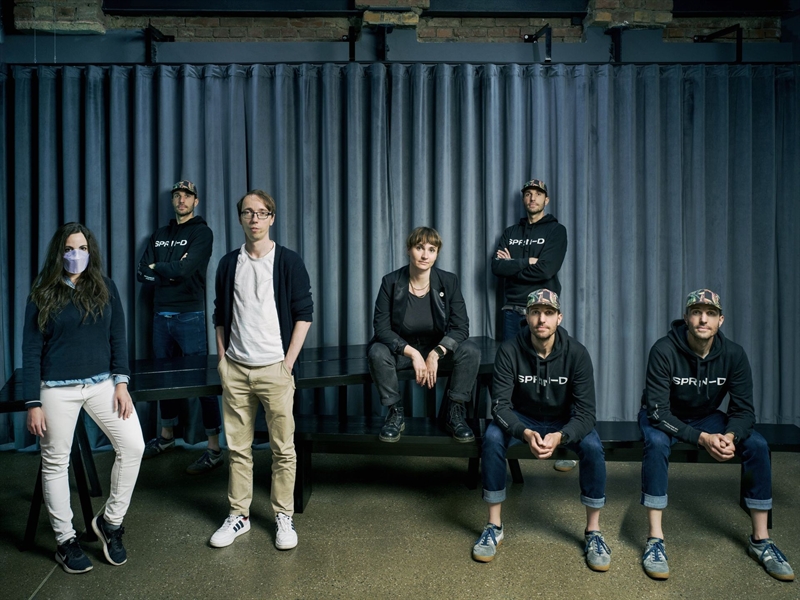
Lindsay Gorman served on the jury for the second round of the Deepfake Detection and Prevention Challenge convened by SPRIN-D, Germany’s Federal Agency for Disruptive Innovation. Participating teams were tasked with developing a technical prototype that reliably detects deepfake images or creates authentication mechanisms for digital content and business plans for new start-up companies. The prototypes must be able to adapt to new deepfake techniques and be used in a variety of media contexts, such as social media, news sites, and video conferencing systems. Gorman, along with five other jurors, selected seven teams to advance to the second phase of the challenge. The jury will reconvene in November to select the winning team.
Jagtiani Speaks at EU Digital Summit
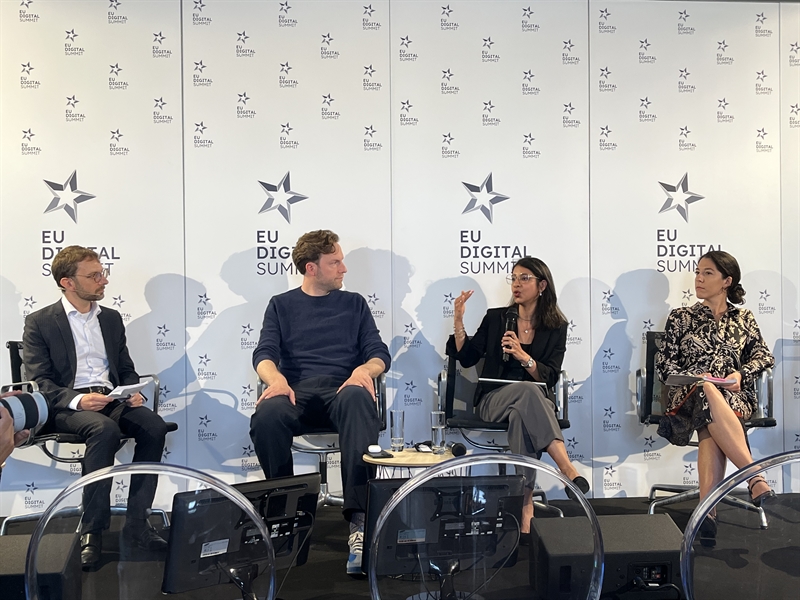
Sharinee Jagtiani spoke at the EU Digital Summit hosted by European Business Summits on June 5 in Brussels. Her panel, “In the Digital Battleground: What is the EU’s Role in the Tech War?”, considered Europe’s strategy and identity in the global technology war. The conversation delved into how Europe can assert its global technology influence, including on industrial policy, security, and innovation. The panel also featured MEP from Germany Damian Boeselager; Lead Analyst at MERICS Rebecca Arcesati; and Director of Research at CERRE Zach Meyers.
Gorman Warns of AI-Powered Threats to Democracy at Internet Governance Forum
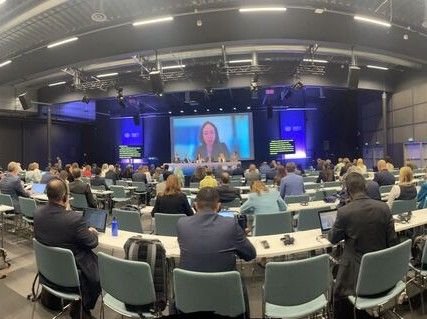
Lindsay Gorman addressed the impact of artificial intelligence and deepfakes on the information environment at the Internet Governance Forum 2025. In her panel, “Digital deceit: The societal impact of online mis- and disinformation”, Gorman warned that deepfake video and audio could threaten key democratic processes. Representatives from the Forum on Information and Democracy, UNESCO, W3C, the Japan Internet Providers Association, the Parliamentary Assembly of the Mediterranean, and the UN Department on Global Communications joined Gorman on the panel.
GMF Technology is dedicated to ensuring that democracies together win the strategic technology competition with autocrats.
Adrienne Goldstein coordinated this month’s TransatlanTech Insider.

